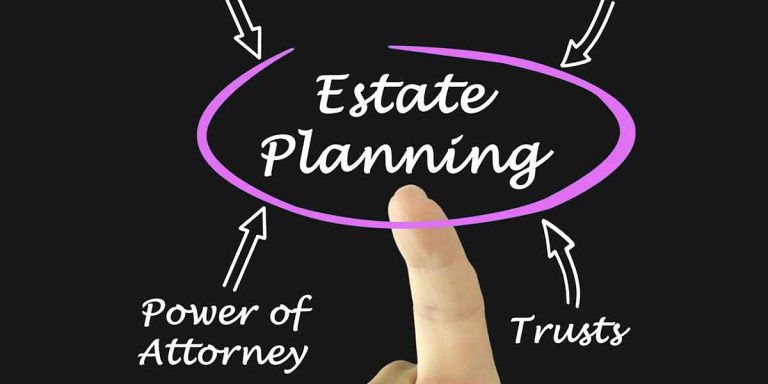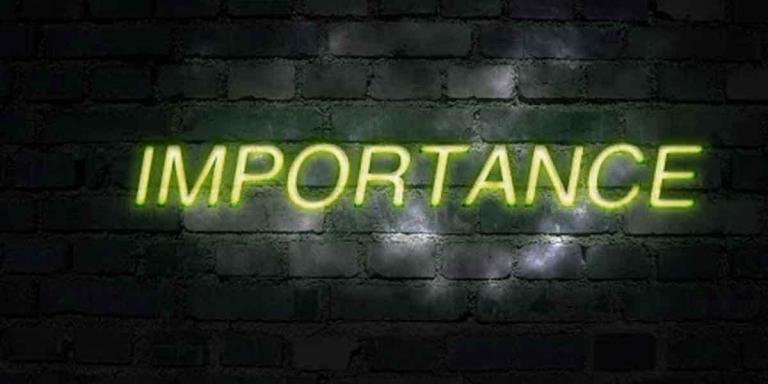The Ultimate Guide to Selecting an Estate Planning Attorney in New York (2025)
Over my 30 years as a New York estate planning attorney, I’ve seen firsthand that the single most important decision a person makes in the entire estate planning process is not which trust to use or how to divide their assets. It is the choice of the legal counsel they entrust with their legacy. Choosing the right attorney is the foundation upon which a successful, resilient, and effective plan is built. The wrong choice can lead to a flawed plan that causes the very conflict, expense, and chaos you sought to avoid. Your attorney is more than a document drafter; they are your strategist, your counselor, and the architect of your family’s future security.
Yet, for most people, the process of finding and hiring the right lawyer can feel overwhelming. The market is filled with general practitioners, online document mills, and a wide spectrum of expertise. How do you identify a true specialist who understands the immense complexities of New York law? This comprehensive guide for 2025 is designed to empower you with the knowledge to make an informed decision. We will explore the non-negotiable qualifications, the subtle qualities that separate a good attorney from a great one, the critical questions you must ask, and the red flags you must avoid. At Morgan Legal Group, we believe an educated client is a protected client. This guide is your first step toward that protection.
The Non-Negotiables: Core Qualifications for Any NY Estate Planning Lawyer
Before you even consider an attorney’s personality or fee structure, there are baseline professional standards that must be met. These are the absolute, non-negotiable requirements. If an attorney you are considering does not meet these criteria, you should immediately remove them from your list. These qualifications form the bedrock of competence and professionalism in this specialized field.
1. A Dedicated and Focused Practice in Estate Planning
This is the most critical factor. Many lawyers are general practitioners who handle a wide range of legal issues—a divorce one day, a real estate closing the next, and an estate plan on Friday. While they may be competent in many areas, estate planning is not a field for dabblers. The laws governing wills, trusts, taxes, and probate in New York are incredibly complex and constantly evolving. You need a specialist, not a generalist. An attorney whose practice is at least 75-80% dedicated to estate planning will have the depth of knowledge required to craft a sophisticated plan. They live and breathe this area of law, which means they are up-to-date on the latest legal strategies, tax code changes, and court rulings.
2. Admission to the New York State Bar and Good Standing
This may seem obvious, but it is a vital checkpoint. Only a lawyer licensed to practice in New York State can provide legal advice and prepare estate planning documents governed by New York law. You can and should verify any attorney’s credentials and standing through the New York State Unified Court System’s attorney search portal. This will confirm they are registered, where they are admitted to practice, and whether there is any public record of disciplinary action against them. Hiring an out-of-state attorney or a non-lawyer service to prepare New York documents is a recipe for disaster.
3. Substantial and Verifiable Experience
In estate planning, experience is not just about the number of years in practice; it’s about the breadth and depth of the cases handled. An attorney with decades of experience, like our firm’s founder Russel Morgan, has likely encountered and successfully navigated hundreds of unique family and financial situations. They have seen how plans succeed and fail in the real world, after a client’s passing. This practical wisdom is invaluable. An experienced attorney can anticipate potential problems and draft documents that are not just legally valid but also practical and conflict-resistant. They have managed complex probate administrations and can design plans specifically to avoid its pitfalls.
Beyond the Basics: Key Qualities of a Truly Great Estate Planning Attorney
Meeting the core qualifications makes an attorney competent. However, the best attorneys offer much more. They possess a set of skills and a professional philosophy that elevates their practice from a mere service to a true counseling profession. When you are entrusting someone with your life’s work and the well-being of your family, these are the qualities you should be searching for.
A Holistic and Comprehensive Understanding of Related Fields
Exceptional estate planning does not exist in a vacuum. It intersects with numerous other complex legal and financial areas. A top-tier attorney possesses, at minimum, a strong working knowledge of:
- New York Probate and Trust Administration: They don’t just draft documents; they understand exactly how those documents will be interpreted and administered by the Surrogate’s Court.
- Federal and New York State Tax Law: They are adept at strategies to minimize estate, gift, and generation-skipping transfer taxes, a critical skill with the federal exemption set to decrease in 2026.
- Elder Law and Medicaid Planning: They can advise on protecting assets from the catastrophic costs of long-term care, a concern for a growing number of clients.
- Business Law: For business owners, they can design succession plans that ensure a smooth transition of leadership and ownership.
- Asset Protection: They understand how to structure trusts and ownership to shield assets from potential future creditors.
- Real Estate Law: They know how to properly title property, including complex assets like co-ops in New York City, to ensure it aligns with the estate plan.
The “Counselor-at-Law” Philosophy
There is a profound difference between a “document preparer” and a true “counselor-at-law.” A document preparer, including many online services, simply plugs your information into a template. A counselor, on the other hand, takes the time to understand your values, your fears, your family dynamics, and your ultimate goals. They don’t start by asking “What do you want?” but rather “What are you trying to achieve?” They listen more than they talk. This counseling-based approach ensures that the final plan is not just a collection of legal clauses but a true reflection of your wishes.
An Educational Approach to Client Relationships
A great estate planning attorney demystifies the process. They can explain complex legal and financial concepts—like the difference between a revocable and irrevocable trust, or the mechanics of a power of attorney—in plain, understandable English. They empower you to be an active participant in the creation of your plan. You should leave their office with a clear understanding of what your plan does, why it is structured the way it is, and how it works. An attorney who uses dense jargon without explanation is doing you a disservice.
A Transparent and Client-Friendly Fee Structure
The best attorneys are upfront and transparent about their fees. As discussed in other articles, a flat-fee structure is vastly superior for estate planning. It fosters an open, collaborative relationship where you are not afraid to call or email with questions for fear of being billed for every minute. An attorney who offers a clear, comprehensive flat fee for a defined scope of work is demonstrating confidence in their process and respect for their clients. Be wary of firms that are vague about costs or insist on a purely hourly arrangement for planning work.
The Consultation: Critical Questions to Ask a Potential Attorney
The initial consultation is your opportunity to interview a potential attorney. Do not be passive. You are the hiring party. Prepare a list of questions to help you assess not only their technical expertise but also whether they are a good fit for you and your family. Here are some of the most important questions to ask:
Questions About Their Practice and Experience
- What percentage of your practice is dedicated specifically to estate planning?
- How long have you been practicing in this area of law?
- Have you handled situations similar to mine before? (e.g., blended families, special needs children, business ownership, significant retirement assets, clients in Long Island, etc.)
- Who in your office will I be working with primarily? Will it be you or a more junior associate or paralegal?
- What is your process for keeping up with changes in New York and federal estate and tax laws?
Questions About Their Process and Philosophy
- Can you describe your estate planning process from start to finish?
- What is your philosophy on using trusts versus relying on a simple will?
- How do you handle the process of “funding” a trust? Do you assist with retitling assets? (This is a critical question, as an unfunded trust is useless).
- How do you charge for your services? Is it a flat fee or hourly? What does your fee include?
- What is your process for communicating with clients during the planning process and in the future?
Questions About the Future of Your Plan
- What happens after I sign my documents? Do you have a system for reviewing or updating my plan?
- How much do you typically charge for plan updates in the future?
- Will you be available to guide my family or trustee when the time comes to administer my estate or trust?
Listen carefully to their answers. Are they clear and direct, or evasive? Do they seem patient and willing to educate you, or are they dismissive? The way they answer is often as important as what they say.
Warning Signs: Red Flags to Watch Out For When Hiring an Attorney
Just as important as knowing what to look for is knowing what to avoid. During your search and consultations, be alert for these common red flags. They often signal a lack of experience, a poor business model, or a philosophy that is not centered on the client’s best interests.
- High-Pressure Sales Tactics: An estate planning consultation should be an educational and deliberative process. Be extremely wary of any attorney who pressures you to sign an engagement letter or make a decision on the spot.
- Offering a “One-Size-Fits-All” Solution: If an attorney recommends a specific type of trust or plan before they have taken the time to fully understand your finances, family, and goals, they are likely selling a product, not providing customized legal counsel.
- Lack of a Clear, Defined Process: A seasoned professional should be able to clearly articulate their process, from the initial meeting to the final signing and beyond. If they cannot, it may indicate a disorganized or inefficient practice.
- Vague or Confusing Fee Explanations: If you cannot get a straight answer on how you will be charged, or if the fee arrangement seems overly complex, it is a major red flag. This can lead to billing disputes and an unpleasant experience.
- Poor Communication and Follow-Up: The initial interactions are often indicative of the entire relationship. If an attorney’s office is slow to respond to your initial inquiry, cancels appointments, or seems generally disorganized, expect that behavior to continue.
- Passing You Off Immediately: While it’s normal for paralegals and junior associates to be involved, the primary counseling and strategic work should be done by the experienced attorney you are hiring. If you meet with a senior partner who then immediately hands your entire file to a first-year lawyer, you are not getting the expertise you are paying for. Issues like guardianship and family law nuances require senior-level insight.
Conclusion: Your Legacy Deserves a True Specialist
Choosing an estate planning attorney is a decision with consequences that will last for generations. It is not the time to cut corners, hire a generalist, or trust an impersonal online form. The peace of mind that comes from knowing your affairs are in the hands of a dedicated, experienced, and compassionate specialist is immeasurable. The right attorney will not only protect your assets but will also preserve family harmony and ensure your legacy is one of provision and care, not confusion and conflict.
We encourage you to use this guide as a checklist in your search. At Morgan Legal Group, we have built our practice on the principles of specialized expertise, a client-first counseling approach, and transparent communication. We are dedicated to providing the highest level of estate planning services to families throughout New York. If you are ready to take the next step, we invite you to get in touch and schedule a consultation. Let us show you the difference that a dedicated counselor-at-law can make.







